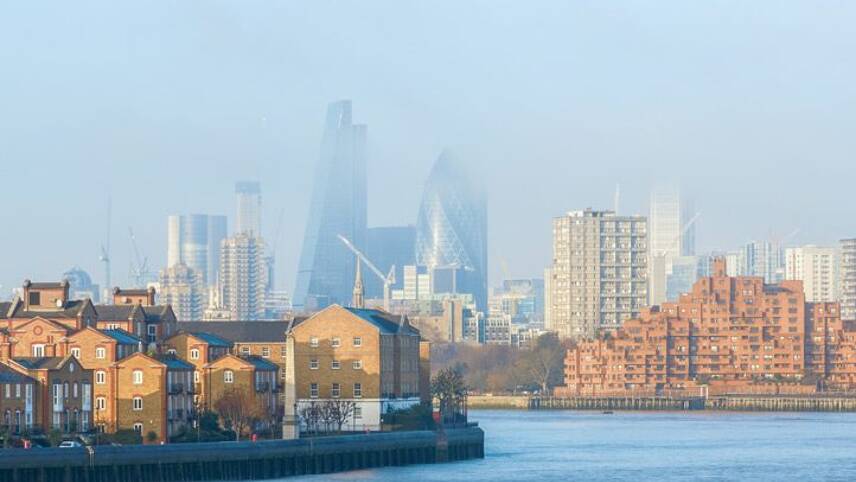Register for free and continue reading
Join our growing army of changemakers and get unlimited access to our premium content

Ministers said the number of people living in areas with pollution above WHO guidelines would be halved by 2025
Farmers will be subject to air quality regulations for the first time to cut their growing contribution to pollution, under the Government plans set out on Monday, while diesel vehicle drivers and owners of wood-burning stoves will also face restrictions.
Under the Government’s plans, only the cleanest forms of biomass stoves will be available from 2022, and farmers will be required to reduce their fertiliser use and the emissions of ammonia – a potent air-polluting gas, which can combine with other forms of air pollution to lodge small particles deep in the lungs – from fertiliser and livestock. Sales of bituminous or traditional house coal may also be phased out.
Ministers said the number of people living in areas with pollution above WHO guidelines would be halved by 2025. The Government said air pollution was one of the biggest threats to public health in the UK, behind only cancer, obesity and heart disease.
But critics said the plans were short on detail, with no deadlines for meeting the WHO limits, and fell short of the status of EU targets, which are enshrined in law. Legal challenges to the Government over its failure to adhere to EU rules, which resulted in a supreme court ruling against ministers last year, have played a key part in bringing air pollution to Government attention in the last five years.
The social and economic costs of air pollution in the UK were likely to be greater than previously thought, the Government said, citing calculations that the cost of air pollution could reach £18.6bn between now and 2035. Ministers said the new plans should reduce the cost to the NHS and society by £1.7bn a year by 2020, rising to £5.3bn a year from 2030.
Fresh science on the dangers of air pollution has been piling up. On Saturday, the Guardian reported new evidence that air pollution can increase the risk of miscarriage in early pregnancy, compared by one doctor to the effects of smoking. In recent years, studies have linked air pollution to dementia, heart conditions and birth defects. About 7 million people a year are estimated to die from air pollution around the world.
Michael Gove, the environment secretary, said the UK needed a new strategy to improve air quality. “The evidence is clear: while air quality has improved significantly in recent years, air pollution continues to shorten lives, harm our children and reduce quality of life,” he said.
After Brexit, the UK will no longer be subject to EU legislation on air pollution, which the Government has flouted repeatedly in the last decade, and which has formed the basis of challenges by campaigners that have forced ministers to change course and put in place measures to reduce the problem.
Fiona Harvey
This article first appeared on the Guardian
edie is part of the Guardian Environment Network


Please login or Register to leave a comment.